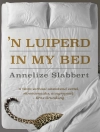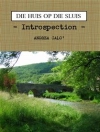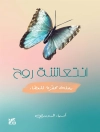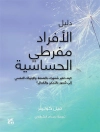In this extensively revised and enlarged edition of his best-selling book,
David Suzuki reflects on the increasingly radical changes in nature and science — from global warming to the science behind mother/baby interactions — and examines what they mean for humankind’s place in the world. The book begins by presenting the concept of people as creatures of the Earth who depend on its gifts of air, water, soil, and sun energy. The author explains how people are genetically programmed to crave the company of other species, and how people suffer enormously when they fail to live in harmony with them. Suzuki analyzes those deep spiritual needs, rooted in nature, that are a crucial component of a loving world. Drawing on his own experiences and those of others who have put their beliefs into action,
The Sacred Balance is a powerful, passionate book with concrete suggestions for creating an ecologically sustainable, satisfying, and fair future by rediscovering and addressing humanity’s basic needs.
表中的内容
Annotated with new material
Chapter 1:
Homo sapiens: Born of the Earth
• New information on brain plasticity.
• Updated information on total number of species on Earth and examples of how little we actually know when discussing life on Earth
• Addition of information on the Human Genome Project.
• Expansion of section on consumerism and the societal and environmental effects.
Chapter 2:
The Breath of All Green Things
• New section on how humans and other mammals cope in low-oxygen environments
• Revised section on how, 2.5 billion years ago, bacteria developed a way to capture light energy and convert it into energy/food —photosynthesis
• New section on how atmospheric pollutants ‘jump’ to regions far from their source (e.g., contamination of Arctic mammals, including humans, from pollutants that original thousands of kilometres away).
Chapter 3:
The Oceans Flowing through Our Veins
• New information on the idea of ‘Hypersea’ proposed by Mark and Dianna Mc Menamin
• Addition of information on the influence of the Amazon Forest in driving world climate and weather patterns.
• Addition of information on water on other planets, including Mars, Saturn, and some Jovian moons.
• New section on the environmental consequences of bottled water.
Chapter 4:
Made from the Soil
• Update on the incredible diversity of life in the soil—as many as one billion individual bacteria, split amongst 40, 000 species, in a teaspoon of forest soil
• New section on life forms distinct from anything that has been discovered before.
• New section on the abundance and importance of fungi.
• Update of section on human agriculture.
• New section on the tragic desertification of the Aral Sea, which, up until the 1950s, was the world’s fourth largest lake.
• New section: Feeding Ourselves Susatainably. Discusses the constraints of industrial agriculture and ways in which communities around the world are trying to reverse the effects through local sustainable agriculture projects.
Chapter 5:
The Divine Fire
• New section on medically-induced hypothermia and how it can help the body heal in certain situations, such as after brain injury or brain surgery.
• New section on animal thermoregulation.
• New section on preliminary experimentation creating fuel from photosynthesis (hydrogen gas).
• New sections on peak oil and climate change, including examples of how some communities are making positive changes to reduce greenhouse gas emissions.
Chapter 6:
Protected by Our Kin
• New section on gene transfer technology, and the risks of tinkering with lifeforms when our basic knowledge about how cells, organisms and ecosystems work is too limited to allow us to anticipate the repercussions of manipulating genes.
• New section on the ‘salmon forests’ of the west coast of North America. A wonderful example that illustrates the interconnectedness of life.
• Update information on biodiversity of life as well as repercussions over rates of extinction.
Chapter 7:
The Law of Love
• New section on the chemistry of love; the changes our bodies go through when we give and receive love.
• New section on the power of touch, with examples of how humans and other animals can fail to thrive without the emotional nourishment of touch.
• Update to section, Lessons Learned from Tragedy, on how institutionalization as babies and toddlers affected Romanian orphans.
• New section on the social relationships of non-humans, particularly other primates.
• Updates to section on biophilia.
• Introduction to ecopsychology, and how reconnecting with others and the nature can help people heal.
Chapter 8:
Sacred Matter
• New section on consciousness and self-awareness in humans and other animal species.
• New section discussing ideas as to why we have religion.
Chapter 9:
Restoring the Balance
• Updating ideas for positive action, including the Suzuki Foundation’s Nature Challenge.
• Update to section on The Natural Step, including examples of communities and companies adopting ideas from this philosophy.
• Update to information on Grameen Bank.
关于作者
David Suzuki is an acclaimed geneticist and environmentalist, the host of The Nature of Things, and the founder and chair of the David Suzuki Foundation . He is the author of more than forty books, including
Good News for a Change,
From Naked Ape to Superspecies (both co-authored with Holly Dressel),
The Sacred Balance (co-authored with Amanda Mc Connell and Adrienne Mason), and
David Suzuki: The Autobiography. He is the recipient of the Unesco Kalinga Prize for Science, the United Nations Environmental Medal, the UNEP’s Global 500 award, and has been named a Companion of the Order of Canada. In addition, he holds eighteen honorary degrees and he has been adopted into three First Nations clans. Suzuki lives in Vancouver, British Columbia.
Amanda Mc Connell has written more than 100 documentary films, many of them for The Nature of Things. She has a Ph.D. in English Literature, and she writes and gardens in Toronto, Ontario.
Adrienne Mason has lived on Vancouver Island all her life and spent twenty years on the west coast, first in Bamfield and then Tofino. As well as writing a local history column for Tofino Time, she is the author of numerous books and magazine articles about science, nature, and west coast history. Her most recent titles include
West Coast Adventures,
The Green Classroom, and
The Nature of Spiders. In the course of writing
Long Beach: A Storied Stretch of Sand, Mason searched for cougar tracks with her children, found the remains of old trails and homesteads in the area, and spent many hours interviewing the people who arrived at Long Beach and never left.












